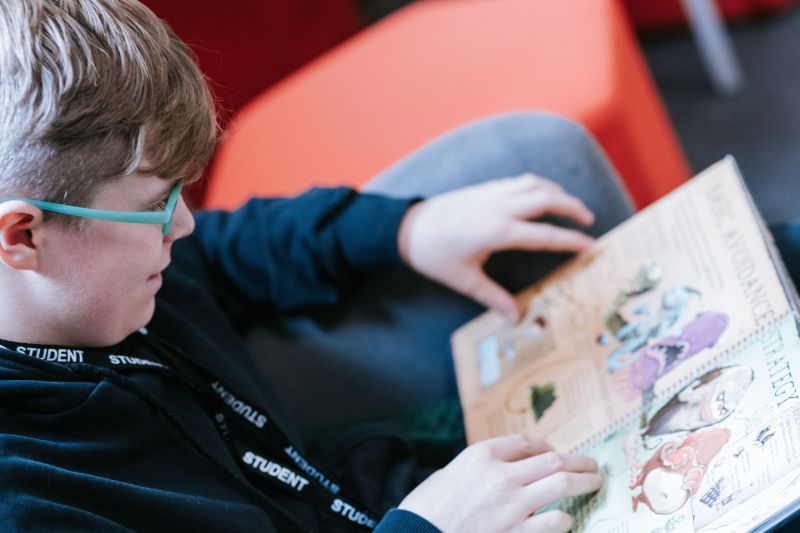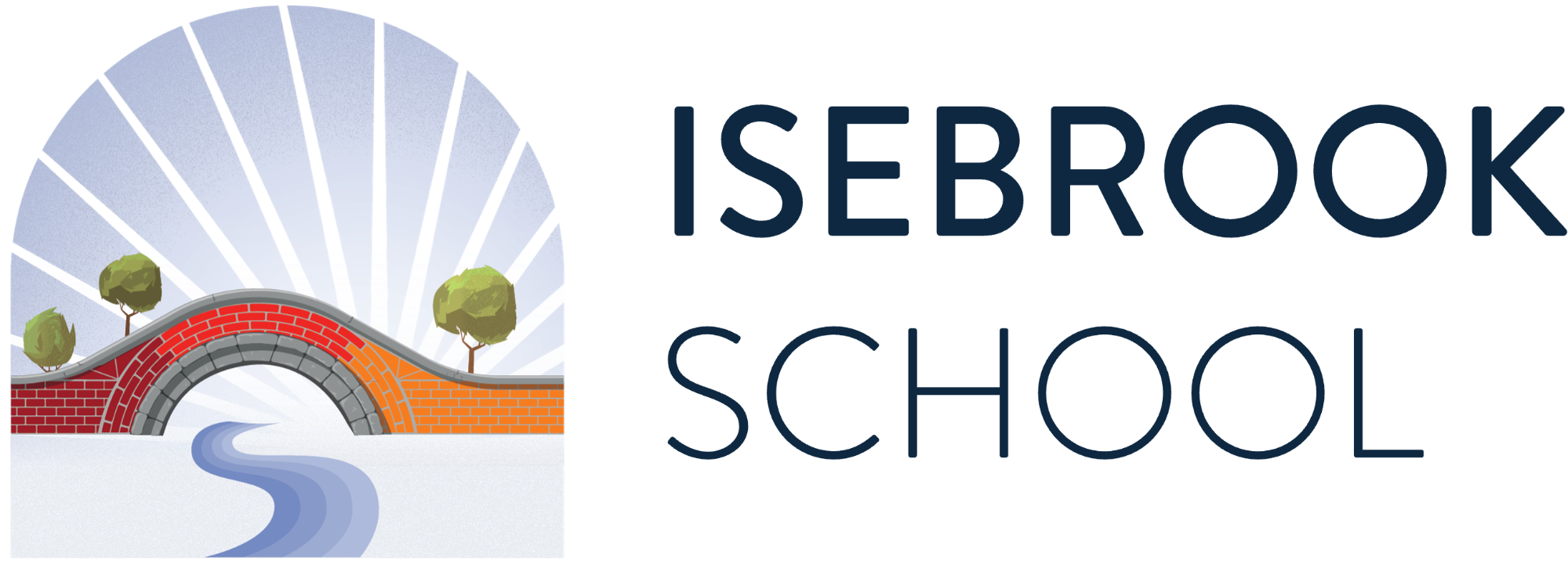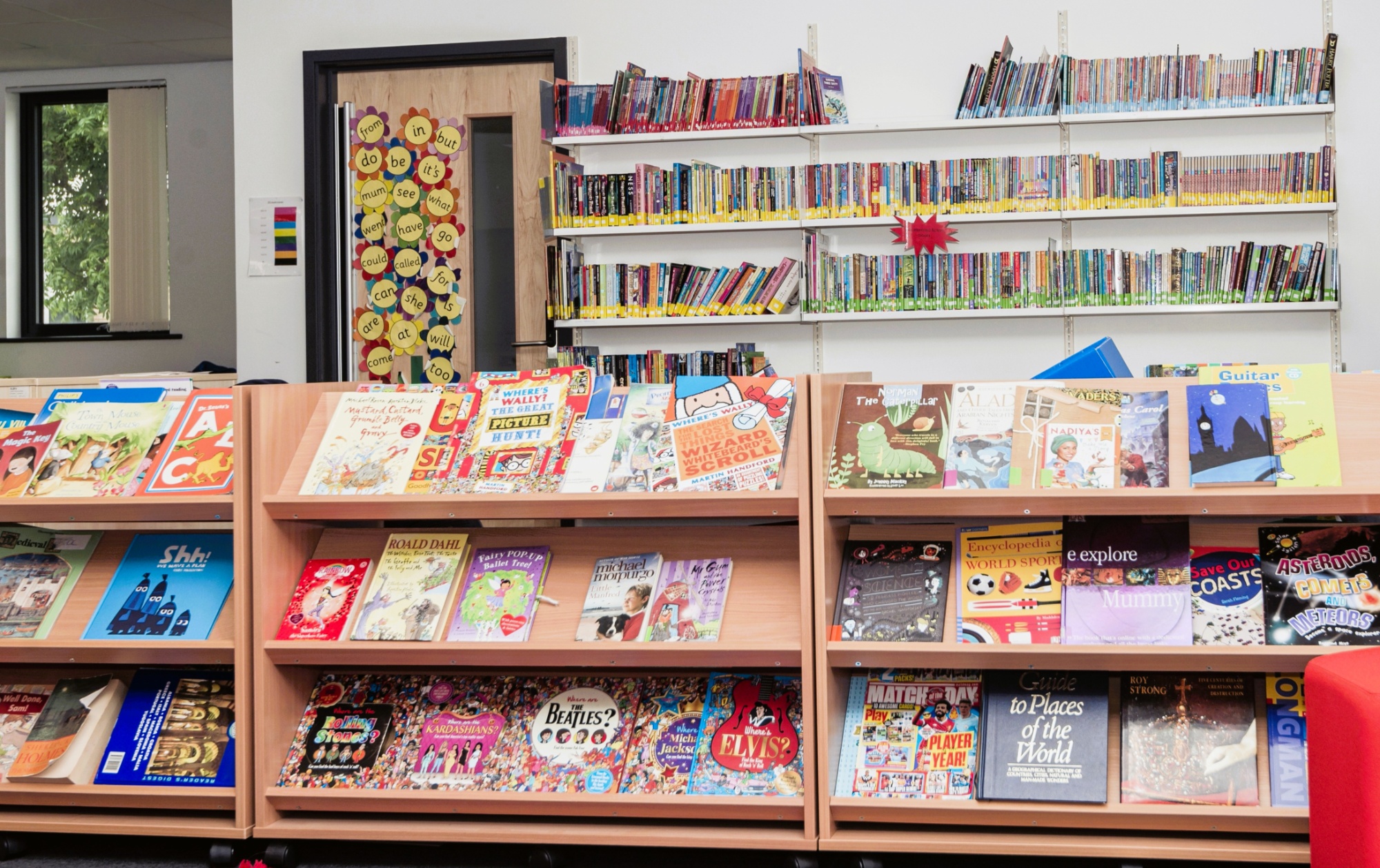

English & Reading

We believe that every student has the right to learn how to communicate, read and write.
We recognise that reading, writing, speaking and listening are not solely attributed to one group of individuals or a single subject such as English. Throughout our entire curriculum, we aim to develop these skills across a range of situations that will prepare our students for life beyond school.
English
Our approach to teaching English is adapted to the needs of our students, depending on their outcome pathway and individual needs. The aims for key stage 3 and key stage 4 are outlined below.
Key Stage 3
English for key stage 3 students focusses on developing confidence and key skills in reading, writing and speaking & listening.
Units are led by a high-quality and engaging text and a mix of genres is covered throughout the year.
Classes comprise mixed-age students in Years 7 and 8, and teachers use individual targets listed on EHCPs and knowledge of the progression of writing set out in the national primary curriculum to provide an appropriate scaffold and stretch for all students.
Key Stage 4
English for key stage 4 students focusses on functional skills and uses the Pearson Functional Skills objectives as a basis.
Students are in mixed-age classes and teachers ensure that all students are challenged and supported to work at the appropriate entry level or level.
Reading
We use a variety of approaches to facilitate the teaching and learning of reading. The approaches below are delivered and reinforced by class teachers and support staff across the curriculum and secured by the literacy team, who provide extra support and interventions on a 1:1 or small group basis where needed.
Multi-Sensory Approach
This uses a combination of senses in the approach to reading.
Students may use finger tracing (building muscle memory), listening and looking skills to explore letters and words.
Phonics
The goal of phonics is to enable beginning readers to decode new written words by sounding them out, or in phonics terms, blending sound-spelling patterns.
We use a systematic phonics programme with individual assessment and intervention to ensure that students master the building blocks of reading.
Reading Fluency
We use the HfL Reading Fluency approach to support the automaticity, accuracy and prosody of reading.
Reading Comprehension Support
It is vital to ensure that a student understands what it is they have just read. We teach students the strategies and techniques for studying text and acquiring meaning.


